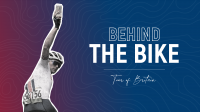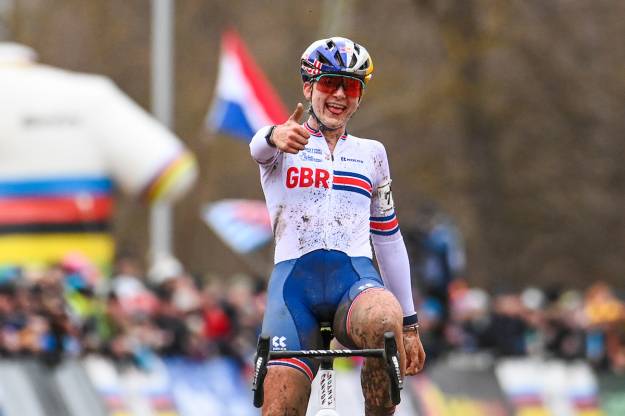| |
Great Britain’s Liam Phillips has admitted he feared his Olympic dreams were over after his horrific crash at the UCI BMX World Championships, as he now continues his rehabilitation towards London 2012.
The 23-year-old suffered a broken collarbone at the National Indoor Arena in Birmingham on 26 May, during the first heat of the qualifying motos, leaving the track on a stretcher and his participation in the London Games an uncertainty.
Phillips, who had claimed a career-best silver in the time trial superfinal on the Friday of the competition, has since undergone surgery on the break with a titanium plate fitted which he will wear through the competition in London which begins on 8 August.
“I did [think it was over],” the British Cycling Podium Programme rider said at the unveiling of the Team GB Olympic cycling squad. “It’s quite strange, it’s not very often you keep your fingers crossed that you have just broken you collarbone. [There’s the] neck, ribs, back of the shoulder, my scapula – I thought that I had broken that as well and that’s not a nice thing to do. I’m grateful that I’ve just come out with that injury which is strange but it’s true, it could have been a hell of a lot worse.
“There is no plan to take it [the titanium plate] out. I guess you could say time is of the essence but I have had two weeks since surgery and everything that is being done so far and will be done in the future will be the best it can be to put me in contention hopefully.
“I have to be careful - at the moment the titanium plate gives a false sense of security, it’s acting as if it’s a normal collarbone when in reality the collarbone is still broken. I have been back in training, I’m not missing any work moving forward. I’m sure when I do get the go ahead to get back on the bike I will be in pretty good shape.”
Phillips will now undertake an altered training programme which will allow him to maintain his preparations, replacing sessions on the BMX for stationary bikes in order to achieve the same physical outputs as he embarks on his second Olympic Games after appearing at Beijing in 2008.
“What we did initially was look at the sessions I would have done if I was able to train on the bike, what gains we would look to get out of them sessions and then basically try and make the same gains but in a different manner,” Phillips explained.
“I have done stuff in the gym then I’ve done stuff on a stationary bike. I don’t really feel it has cost me a huge amount, the biggest thing is the technical side of things - you can’t replicate that. The only way you can make tactical gains is by performing in the field, that’s going to be a challenge.
“But I know from my time on the track – not riding a BMX bike for seven months – then getting back onto the bike and within two to three weeks being back up to speed the technical side of things doesn’t disappear.”
Birmingham’s championships were Phillip’s first since 2010, having missed the 2011 event in Copenhagen after spending a phase of time on the track as a potential man one for the team sprint before returning to BMX in October last year. Prior to the interlude, he admits he had become weary of injuries on the BMX, and with them his enjoyment and zeal suffered.
He is adamant, however, that he now profiting from his seven month sabbatical.
“The sport had progressed since Beijing - the athletes have become better, the speeds are greater, the jumps are bigger, when you add all that together you can’t crash without taking an injury.
“But in terms of dealing with it, it’s something I couldn’t deal with 12 months ago – that’s why I switched to the track. I guess the straw that broke the camel’s back was when I had surgery on my wrist and elbow from a crash and it was something that I wasn’t getting enjoyment from anymore.
“So I switched to the track and soon realised BMX was what I wanted to do and it’s something I’ve done since I was five years old. There were some things I had taken for granted in the sport and that time away allowed me to realise that. I came back into things with new found fondness and rejuvenation.
“I can sit here now and it [injuries] doesn’t really bother me – it’s a part of the sport whereas 12 months ago that wasn’t the case, it was working hard and getting injured and then not being able to compete. Racing is what I like to do, I like to go into competition and race against the best guys in the world and obviously when you are injured you can’t do that it makes things tough.”









